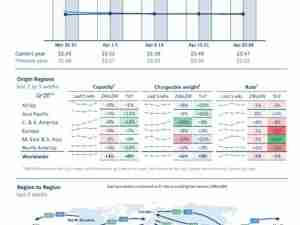AfA Regulatory Compliance Committee Provides Member Impact Analysis of the Fair Labor Standards Act
posted by AJOT | May 19 2016 at 08:34 AM | Air Cargo | Logistics
Yesterday, the U.S. Department of Labor issued a Final Rule making major changes to the Fair Labor Standards Act (FLSA) overtime regulations. The focus is primarily on updating the salary levels for workers to be exempt from overtime requirements.. Here are the key elements that you need to know:
The new Rule becomes effective December 1 of this year.
Minimum Salary Level of $47,476 annually ($913/week), or slightly more than double the old threshold of $23,660.00;
Highly Compensated Employee (HCE) Exemption is now $134,004 annual;
Minimum Salary Level automatically adjusts every 3 years. This minimum is based on the standard salary level at the 40th percentile of earnings of full-time salaried workers in the lowest-wage Census (90th percentile for highly compensated employee). This automatic updating of the salary threshold does not take into consideration changing economic conditions or regional differences. It also denies the public from having input on the triennial salary threshold increases;
The Final Rule makes no changes to the traditional duties tests;
The Final Rule amends the salary basis test to allow employers to use non-discretionary bonuses and incentive payments (including commissions) to satisfy up to 10 percent of the new standard salary level. If the Department of Labor is consistent on how it uses bonuses and commissions to include in overtime, we should be able to use 10% per week. However, this very issue on how commissions are calculated against the salary threshold and how to properly implement that process are still being discussed. However, the Department of Labor's examples are based on a per week 10% formula and spreading it over each week would be consistent with their prior enforcement practices.
Since this rule will be going into effect on 12-01-16, it is important that you review your workforce to establish which employees will be affected, and if you need to re-classify those employees or adjust compensation to meet the minimum standard. Also, it will be important to make sure to establish a procedure for the periodic 3-year adjustments, together with a review process.
The AfA Regulatory Compliance Committee will continue to review and provide information on this new rule as it becomes available. It may also be prudent for AfA members to review the new rule and its effect on their company with legal counsel.







